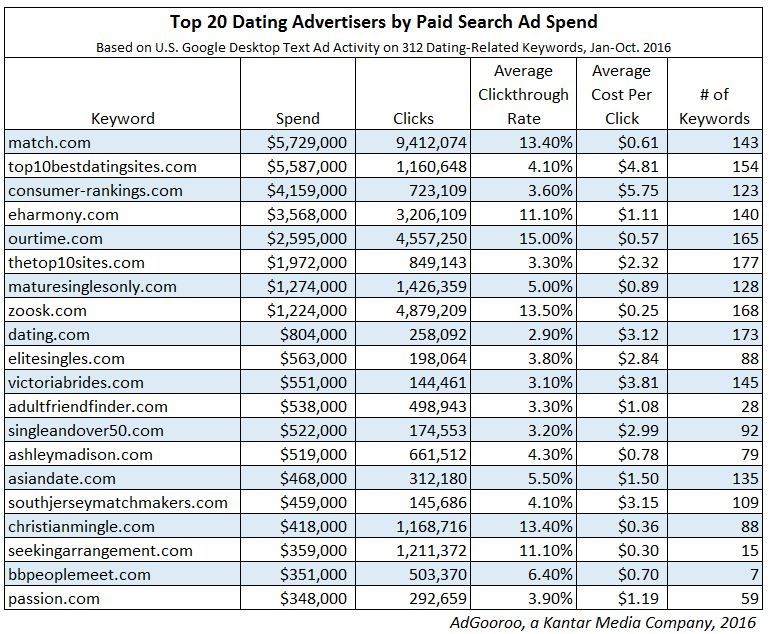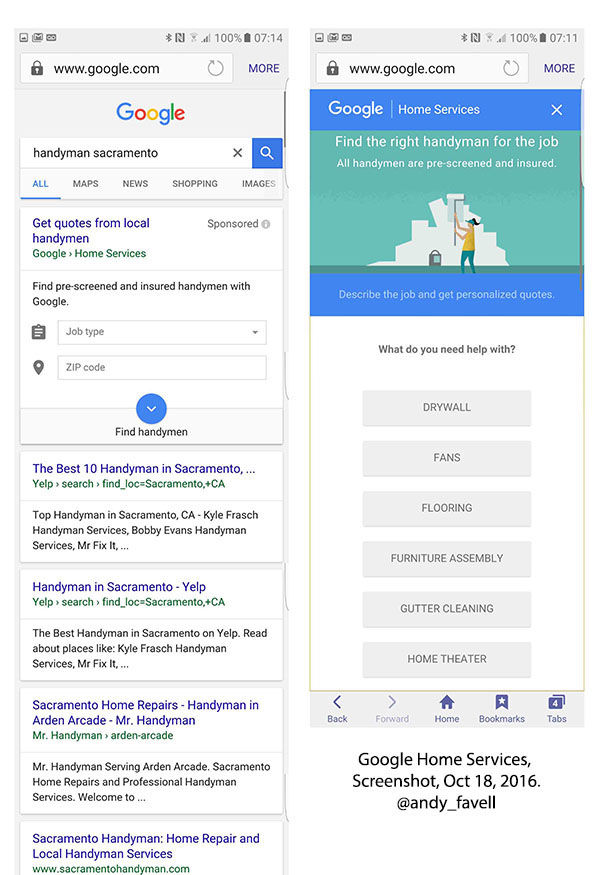Five most important search marketing news stories of the week
Welcome to our weekly round-up of all the latest news and research from the world of search marketing and beyond.
I hope all of our readers are holding up okay after the absolute bombshell development that took place earlier this week.
I’m talking, of course, about the news that Facebook is to begin delivering its Audience Network to television devices, bringing a new level of ad targeting to the space. (What did you think I was referring to?)
Also in search news, Google Home Services ads appear in mobile search before disappearing again; a look at how Google Symptom Search will affect the healthcare industry; and Match.com is the top-ranked dating site for paid search advertising.
Facebook is bringing its Audience Network to television
Audience Network, Facebook’s answer to Google AdSense, is an increasingly important asset for Facebook as it sets out to address ad load challenges that could become a real problem in 2017.
Al Roberts wrote this week on Search Engine Watch about how Facebook’s advertising efforts will enter a new frontier as it begins delivering video ads to consumers using devices like AppleTV and Roku. Roberts explained:
Initially, it won’t sell inventory to marketers. Instead, it will serve up house ads for Facebook services or nonprofits it works with.
To target ads, Facebook will use the IP addresses of connected TV devices to identify the Facebook accounts that are likely associated with those devices.
Google Home Services ads come to mobile search (then disappear again)
Last Friday, Andy Favell reported for Search Engine Watch that Google has been trialling Google Home Services ads on mobile in a clear sign that Google intends to roll the GHS beta program out to its mobile platform.
The brief trial gave us a glimpse at what the ads will look like when they do arrive on mobile, and how the format will differ from desktop. In his article, Andy Favell recaps the history of Google Home Services and considers the possible effect it might have on the future of mobile local search.
How Google Symptom Search will affect the healthcare industry
We’ve all heard the jokes about WebMD and its shaky diagnoses, or hypochondriac internet users who self-diagnose with any number of horrific illnesses without once consulting an actual doctor. But Jonathan Catley believes that Google Symptom Search is revolutionising the healthcare industry, and doctors should embrace it as an opportunity to provide better care.
Writing for Search Engine Watch this week, Catley explained that Google Symptom Search is aimed at counteracting the amount of inaccurate information about illnesses floating around on the web.
Symptom search represents a big step forward in the fight against misinformation in the digital patient path to treatment. Currently available only on mobile, the feature allows users to enter just a few symptoms, yielding a short, vetted list of related conditions, possible causes, and treatments.
It’s designed to avoid alarmist diagnoses while focusing on the most likely causes of your condition.
Catley believes that Google Symptom Search forms part of the “consumer-driven disruption in healthcare”, which encompasses businesses like Dispatch, Pager, and MedZed as well as remote patient monitoring technologies and start-ups like BeWell Connect.
Match.com ranks top for paid search advertising
According to research by AdGooroo, Match.com was the top ranked dating site in terms of paid search spend between January and October 2016.
In order to put together the ranking, AdGooroo looked at 312 top branded and non-branded keywords being sponsored by dating advertisers in US Google desktop text ads.
 Image: AdGooroo
Image: AdGooroo
Match.com, which is owned by InterActiveCorp, not only spent more than $5.7 million on the keyword group during time period examined, it also drove more clicks than any other advertiser during the period. Meanwhile, the dating site which got the best value for its clicks was zoosk.com, spending just $1.2 million but driving close to 4.9 million clicks, at an average cost per click of $0.25.
Check out Adgooroo’s blog post for full details of the study and analysis of the rankings.
Donald Trump is the first earned media president
Finally, unless you’ve been completely cut off from the world around you or just woke up from inside a cave, you might have heard the news that Donald Trump has been elected 45th president of the United States.
Al Roberts wrote an insightful piece on our sister site ClickZ about how Trump may well be the first ‘earned media president’ of the United States, after Barack Obama became the first ‘social media president’ in 2008.
Roberts looks into how Trump’s campaign succeeded despite spending far less on advertising than his opponent Hillary Clinton, and how his willingness to criticise and attack the media itself actually worked in his favour.
While the experts will have to explore and debate the reasons the Clinton campaign failed to live up to their expectations, just as President Obama’s 2008 campaign made it clear that future campaigns couldn’t ignore social media, President Elect Trump’s 2016 campaign has made it clear that future campaigns will not be able to ignore earned media.
source https://searchenginewatch.com/2016/11/11/five-most-important-search-marketing-news-stories-of-the-week-11/
